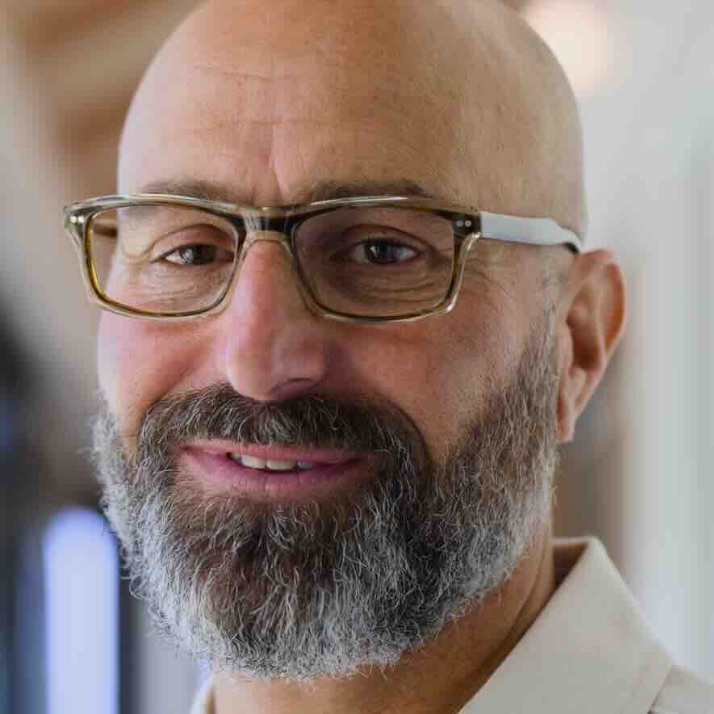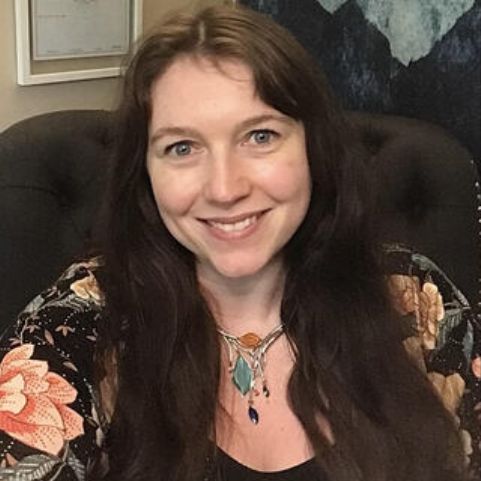Starting Your Alcohol Abuse Therapy Journey in Detroit
Starting your Alcohol Abuse therapy journey in Detroit begins with understanding the city’s wide range of support options—from hospital-based programs and community clinics to private practices across neighborhoods like Midtown, Corktown, and the East Side. MiResource makes it easy to discover providers near your work, school, or home by centralizing local therapists and programs in one place. Use the directory to compare options side-by-side so you can quickly identify services that match your goals, whether you prefer individual counseling, group therapy, or integrated care with medication support.
Within MiResource, filter by therapy approach (such as CBT, motivational interviewing, or trauma-informed care), accepted insurance plans, out-of-pocket rates, and real-time availability. You can also narrow results by clinician specialties, language, and telehealth vs. in-person sessions, ensuring you connect with someone who understands your specific needs. These tools reduce the back-and-forth of phone calls and help you book sooner with a therapist who is actually taking new clients.
Choosing a Detroit-based therapist can improve accessibility, scheduling flexibility, and cultural fit, especially if you rely on local transit or need evening/weekend appointments. Being close to care supports consistent attendance, which is crucial for Alcohol Abuse recovery, and increases the likelihood of finding a therapist familiar with Detroit’s communities and resources. Start with MiResource’s directory to locate providers nearby, verify insurance compatibility, and secure an appointment that fits your schedule.
Mental Health Resources for Alcohol Abuse in Detroit
If you’re looking for help with Alcohol Abuse-related mental health in Detroit, these trusted options can get you care fast. Start with emergency/crisis services if there’s immediate danger, then explore public programs, health systems, nonprofits, and clinics for ongoing support. Many offer detox, counseling, and recovery groups. You can also use MiResource to search for licensed Alcohol Abuse therapists in Detroit.
Emergency & Crisis
- 911 (immediate danger): tel:911
- 988 Suicide & Crisis Lifeline Suicide
- Detroit Receiving Hospital Emergency Department (DMC)
- Henry Ford Hospital – Detroit Emergency
- DMC Sinai-Grace Hospital Emergency
Public & City Programs
- Detroit Wayne Integrated Health Network (DWIHN) – 24/7 Access to mental health and SUD services
- City of Detroit Health Department – Behavioral Health & Substance Use resources:
- Michigan 2-1-1 – Local treatment and recovery referrals
Nonprofits & Support Groups
- NAMI Metropolitan Detroit – education and support
- Alcohol Abuseics Anonymous (SE Michigan Intergroup) – Detroit-area meetings
- SMART Recovery – Detroit-area meetings
- Al‑Anon Family Groups (Michigan) – support for families/friends
- Detroit Recovery Project – peer recovery support:
Health Systems & Universities
- Henry Ford Health Behavioral Health Services
- Detroit Medical Center (DMC) Behavioral Health
- Wayne Health (Wayne State) Behavioral Health
- Wayne State University Psychology Clinic (sliding-scale therapy):
Community Clinics/Sliding-Scale
- Detroit Community Health Connection (FQHC)
- Covenant Community Care (FQHC)
- CHASS Center (FQHC)
- Advantage Health Centers (FQHC)
- The Wellness Plan Medical Centers (FQHC)
Use MiResource anytime to find licensed Alcohol Abuse therapists in Detroit who fit your needs.
The Benefits of Seeing a Detroit-Based Alcohol Abuse Therapist
Working with a Detroit-based therapist who specializes in Alcohol Abuse use brings the advantage of local knowledge and cultural fit. A clinician practicing in Midtown, New Center, or Corktown understands how stressors tied to shifts at the RenCen, game-day crowds around Comerica Park and Little Caesars Arena, or weekend routines at Eastern Market can intersect with triggers and recovery plans. In-person sessions are easy to fold into daily life—offices along Woodward are accessible via the QLINE and DDOT’s Woodward line, with SMART FAST routes connecting the suburbs; the People Mover simplifies downtown hops, MoGo bike share has stations across Downtown and Midtown, and parking is straightforward at structures like the Z Garage near Campus Martius or Wayne State’s garages off Cass. That familiarity helps tailor harm-reduction strategies for festivals like the Detroit Jazz Festival at Hart Plaza or Movement, and to plan sober-supportive routines on Belle Isle or along the Dequindre Cut.
Detroit’s community connections amplify therapy outcomes. Your therapist can bridge you to local networks such as Alcohol Abuse Anonymous of Southeastern Michigan, Detroit Recovery Project’s peer services and recovery community centers, and county-backed options through Detroit Wayne Integrated Health Network for treatment, case management, and crisis support. For additional resources, CARE of Southeastern Michigan provides family and recovery coaching, and Henry Ford Health offers evidence-based substance use care across the metro area. Many neighborhood clinics in Mexicantown, West Village, and Lafayette Park offer evening hours to fit shift work, with bus-friendly access and on-site or nearby parking—making consistent, culturally aware, and locally grounded therapy not just effective, but practical.
Understanding Alcohol Abuse
Alcohol Abuse is a widely used substance that affects the brain and body, influencing mood, judgment, and how we cope with stress. Many people in Detroit may have a range of experiences—from casual or social drinking to challenges like hangovers, risky use, or dependence—and support is available.
About Alcohol Abuse
Alcohol Abuse is a drink that affects the brain and body, and some people find themselves drinking more often or more than they planned. Common signs include strong cravings, trouble cutting back, mood or sleep changes, hangovers that interfere with daily tasks, and conflicts with friends or family. Over time, Alcohol Abuse can make it harder to focus at work or school, impact your health and safety, and strain money and relationships in Detroit. For more details, see our Alcohol Abuse information page.
How Therapy Can Help with Alcohol Abuse
Therapy can help you understand your relationship with Alcohol Abuse, build motivation for change, and create a realistic plan that fits your life in Detroit. Evidence-based approaches like Motivational Interviewing and Cognitive Behavioral Therapy can reduce cravings, strengthen coping skills, and address triggers and underlying stressors. Relapse-prevention strategies and contingency management offer practical tools to maintain progress and celebrate wins. With consistent support, many people experience better sleep, healthier relationships, improved mood, and greater control day to day.
Inside the Alcohol Abuse Therapy Process
Your first session focuses on understanding your history with Alcohol Abuse, clarifying goals, and building a plan; ongoing visits track progress, practice new skills, and adjust supports as you move from early change to long-term recovery in Detroit. Evidence-based approaches like Motivational Interviewing, Cognitive Behavioral Therapy, contingency management, and relapse-prevention planning are tailored to your needs and stage of change. MI strengthens your own reasons for change, CBT helps identify triggers and reshape unhelpful thoughts and habits, contingency management rewards healthy behaviors, and relapse-prevention builds coping strategies and support systems for high-risk situations. Therapy is collaborative—you and your therapist set priorities together, review what’s working, and adapt the plan so care stays effective over time.
Common Questions About Alcohol Abuse Therapy in Detroit
1) How can I tell if I should see an Alcohol Abuse therapist?
If Alcohol Abuse is starting to affect your daily life—like missing work or classes, arguing more with loved ones, or breaking promises to yourself about cutting back—it may be time to talk to a professional. Common signs include drinking more than you planned, using Alcohol Abuse to cope with stress, feeling guilty or worried about your drinking, or having trouble stopping once you start. You might also notice cravings, withdrawal symptoms, or risky situations tied to Alcohol Abuse. Reaching out in Detroit doesn’t mean you’ve failed; it means you’re taking care of yourself.
2) What if the first Alcohol Abuse therapist I see in Detroit isn’t the right fit?
It’s completely normal if the first therapist isn’t a match—fit is a huge part of effective Alcohol Abuse therapy. You deserve to feel understood, respected, and hopeful in sessions. In Detroit, you can switch therapists without starting over emotionally; your progress still matters. MiResource makes this easier by helping you compare options, refine your preferences, and quickly connect with another clinician.
3) Is virtual Alcohol Abuse therapy effective?
Yes—studies show virtual therapy can be as effective as in-person sessions for many Alcohol Abuse concerns, especially when you meet consistently and use evidence‑based approaches. Online care adds convenience and privacy, which can make it easier to stick with treatment in Detroit. In-person sessions can feel more immersive and may help when you want a structured setting or need coordination with local services. Many people use a mix of both to fit their schedules and needs.
4) What should I ask when choosing an Alcohol Abuse therapist in Detroit?
Ask about credentials and experience with Alcohol Abuse use, including approaches they use (like CBT, motivational interviewing, relapse prevention) and whether they support harm reduction, abstinence, or both. Check practical details: availability, telehealth vs. Detroit office location, fees, insurance, and wait times. Clarify how they set goals, track progress, and handle relapse or crises, and whether they coordinate with medication providers or support groups. It can also help to ask about cultural fit, communication style, and what a typical first session looks like.
5) Does Alcohol Abuse therapy really help?
Yes—research shows Alcohol Abuse therapy reduces heavy drinking, increases days without Alcohol Abuse, and improves mental health, relationships, and quality of life. Evidence‑based methods like CBT, motivational interviewing, and contingency management are especially effective, and benefits often grow when combined with support groups or medication when appropriate. Therapy also helps you build coping skills, strengthen motivation, and make a plan for high‑risk situations. With consistent support in Detroit, many people see meaningful, lasting change.













